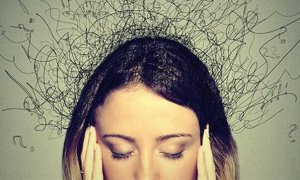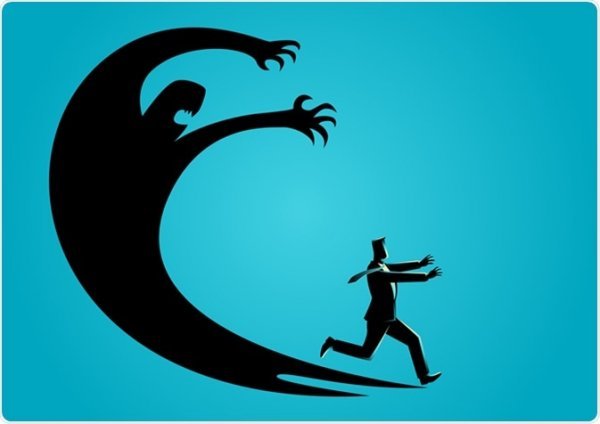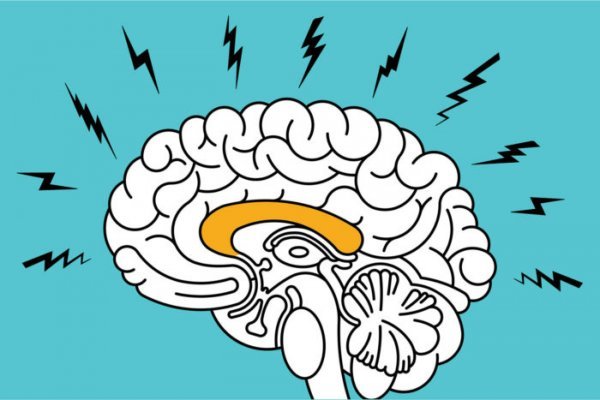Anxiety's Impact on your Brain: A Maze of Exhaustion


Written and verified by the psychologist Valeria Sabater
Demographic studies can tell us a lot, and apparently there are many people living with chronic anxiety. They can’t see that there’s another way to feel your way through reality and process it. They let the raging bull of anxiety whip them around and don’t know what to do. But there are also other people who have something called situational anxiety. This involves things like public speaking, job interviews, exams, or even interacting with people. These are all things that might make your brain hoist its red flag of danger.
We’ve all dealt with anxiety at some point or another, it’s a natural human response. In the right doses, it can even help push you towards your goals. The problem is that so much of the time it gets completely out of our hands. It doesn’t take long for it to take over your life, sometimes without you realizing it. When that happens, it warps everything and throws everything into confusion, like a Kandinsky painting.

Anxiety’s impact on your brain
If you want to truly understand anxiety’s impact on your brain, there’s one important thing you have to know first. You have to know how to tell it apart from stress. For example, stress has to do with a physiological process that starts because of several external factors. In other words, there’s always something specific that causes it. It could be pressure at work, too many things to do, problems at home, etc… It basically appears when you’re aware that “you don’t have the resources” to deal with all those stimuli.
Anxiety, on the other hand, is much more complicated. It might be true that a lot of the time it’s a byproduct of stress, but there are also a lot of times when you experience it without knowing why. It’s coming from somewhere internal. It’s something that comes up again and again at rough times. It is a physiological response that gets you ready to run away from a threat or fight it (whether it’s real or not).
This is what makes anxiety different from stress. It’s also what makes it so much harder to manage, because of what goes on in your brain when you’re feeling it. We’re going to dig deeper into that now.
The amygdala
The amygdala is a small structure at the very back of your brain. It’s the part that processes and interprets all the sensory signals that come from your environment. It’s also the part that alerts your brain when there’s a threat, something dangerous to protect yourself from. It’s basically your instinctive (and occasionally irrational) sensor for common fears like spiders, darkness, heights, etc…

The hippocampus
The hippocampus is the part of your brain related to emotional memory. If anxiety has a prolonged, intense impact on your brain, this is one of the parts that will feel the affects most. It gets smaller, which brings along a lot of other serious side effects. Things like memory loss, difficulty concentrating, and even post-traumatic stress are all very common with this kind of problem. This last one is really common in children who have been abused, with the awful weight of being constantly afraid, anxious, and feeling like you’re in danger.
In fact, just a few months ago the journal Neuron published an extremely interesting and hopeful discovery. Researchers found that the cells responsible for anxiety are actually all in the hippocampus. Now they hope to use that finding to develop better medication to treat this problem.
Cortisol, norepinephrine, and adrenaline
Restlessness, alarm, muscle tension, and tachycardia are all side effects of a few specific neurotransmitters. Anxiety’s impact on your brain comes entirely from the unmistakable (and dreaded) combination of cortisol, norephineprhine, and adrenaline.
First your amygdala identifies the danger, and then these neurotransmitters get you to react. Your brain wants you to protect yourself by either running away or reacting some other way. One way it does that is by pumping more blood into your muscles. That speeds up your heart rate and sends more air into your lungs.
Of course, this state of alarm can be truly helpful, as long as the threat is “real.” But when it’s not, and you’re constantly activating this physiological process, that’s when the problems come up. You’ll start to have digestive problems, headaches, hypertension, and a risk of cerebrovascular issues.

What you can do about anxiety’s impact on your brain
Like we mentioned at the beginning, anxiety is a physiological response. So it’s not enough just to say “calm down, everything will be fine” to yourself. If your brain decides there’s some danger, reasoning things out won’t help you much. That’s why it’s important to start with the physiological, bodily side of things.
- Convince your body that there’s no danger. How? Do relaxation techniques like deep breathing. Put your body on “pause” so that your brain will slow down too.
- Make anxiety work for you. Managing it isn’t an issue of willpower. You can’t make this psycho-physiological reality just disappear from your brain. What you have to do is get through it, and make good use of what it gives you. Artistic therapies are a great way to help you visualize that and actually achieve it. Ceramics and painting are two of the best art forms for giving a shape to your anxiety. They can turn a devastating monster into a much smaller, less scary, and more manageable creature.
- New habits, new routines. Doing something different in your daily routine has the potential to change everything. Going on walks, going to a concert every week, meeting new people, signing up for a yoga class… All of those things might change your brain’s alarm system, and get you to see things differently.
Lastly, don’t hesitate to see a professional if your anxiety is getting the best of you. No one deserves to live with fear. No one should have to live forever as a prisoner to a chronic anxiety that makes life so much bleaker.
This text is provided for informational purposes only and does not replace consultation with a professional. If in doubt, consult your specialist.








